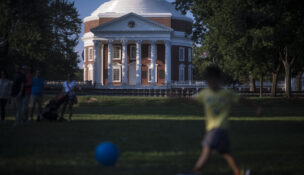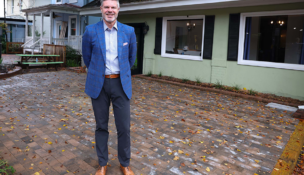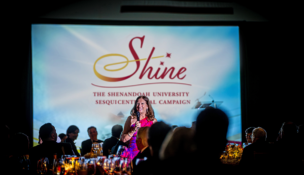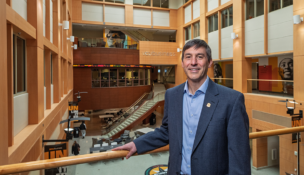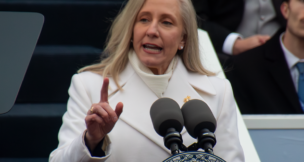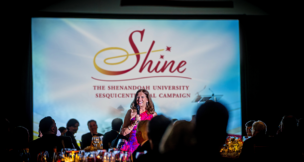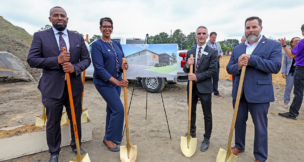The ol’ college try
Universities teach real-life startup lessons
Snacks and energy drinks are often the fuel for young entrepreneurs burning the midnight oil while perfecting their pitches and products. But for some University of Richmond students, snacks and energy drinks are their products.
Grace Mittl, a 2022 UR graduate, is co-founder and CEO of Absurd Snacks, a food allergy-friendly trail mix devised during Bench Top Innovations, a yearlong course that lets UR students guide a food or beverage concept from idea to commercialization. It “allows people to test their entrepreneurial itch,” Mittl says. “If you fail, it’s OK.”
Mittl’s nut-free snack, created during UR’s inaugural 2021-22 Bench Top Innovations course, is now sold at several Richmond grocery stores and convenience stores. Next up is TwinTail Brews, a sugar-free energy drink produced by the 2022-23 Bench Top class.
These are just two examples of the numerous ways that Virginia’s universities are providing students real-world experience with startups.
For instance, the University of Mary Washington‘s Center for Economic Development offers a student entrepreneur education program, StartUpUMW, and the University of Virginia has several entrepreneurship centers across multiple colleges with focuses on technology, nonprofit startups, licensing inventions and more.
In past decades, higher education’s efforts to cultivate entrepreneurship were largely the purview of business schools or of university technology transfer offices. But these days, colleges and universities are casting a wider net in encouraging startup ventures.
For example, at the Old Dominion University‘s Institute for Innovation & Entrepreneurship, faculty, staff and students of any major can collaborate and start businesses.
Virginia Tech‘s Apex Center for Entrepreneurs is also interdisciplinary and “provides any Hokie, from any major and any year the opportunity to engage in all phases of the entrepreneurship.”
In Mittl’s class, students worked in teams and presented their product pitches to a panel of judges who decided which project the whole class would work on.
“I was elected CEO of the class and had rights to the [intellectual property] as the original creator of the recipe,” Mittl says. She and class COO Eli Bank decided to continue running and growing Absurd Snacks after graduation in May 2022.
“That was super far off from my plan,” she says. “I had a job lined up in digital marketing. I had an interest in the food and beverage industry, but I wouldn’t say it was in the cards to start a business.”
Her company now has 25 accounts, primarily natural grocery stores in the Richmond area, she says, adding that Absurd Snacks plans to take on three student interns this summer.
Joel Mier, a lecturer of marketing in UR’s Robins School of Business, is creator of the Bench Top program. A number of factors led to the decision to focus the program on the food and beverage industry, he says. First, UR executive-in-residence Shane Emmett is the former CEO of the Health Warrior health food brand, which he and his co-founders sold for an undisclosed amount to PepsiCo Inc. in 2019. Also, the university has an industrial kitchen where students can test products and then scale up commercially. And, Mier notes, food is “one thing that everyone participates in every day.”
A former vice president of marketing at Genworth Financial Inc., Mier started his career in various leadership roles at three Silicon Valley tech startups. That’s the kind of environment that comes to mind when people think of startups, but Mier wants to demonstrate that “innovation happens everywhere,” not just in tech, and he enjoys hearing “students from all walks of life say, ‘I didn’t know what I was capable of.’”
At George Mason University, students and faculty are “a subset” of the people served by the Mason Enterprise Center, according to Paula Sorrell, associate vice president of innovation and economic development. The center offers programs, services and resources for entrepreneurs of all experience levels.
Students and faculty take part in the center’s Mason Innovation Exchange — the MIX for short — which is home to a makerspace and fabrication lab, a digital media lab and a startup incubator, offering everything from metal fabrication to business mentoring.
Another key part of Mason’s program is to connect students with entrepreneurship-related internships, Sorrell says. And through the National Science Foundation, it is part of a regional consortium aimed at providing experiential entrepreneurial training to academic researchers in science and engineering.
GMU is also a hotbed of biotech research; the Institute for Biohealth Innovation includes about 300 faculty and thousands of students focused on researching infectious diseases, cancer, reproductive health and other medical conditions.
One success story is Shrishti Singh, a postdoctoral fellow at GMU who plans to form a company to produce a photoacoustic imaging technology for doctors to visualize early-stage, precancerous tumors without resorting to invasive surgery — a development that Singh hopes will lead to the survival of more patients.
“This technology gives patients better diagnostics for colon cancer, pancreatic cancer, breast cancer and more, and can improve their prognosis,” Singh said in a statement, adding that her goal was to develop technologies that “make it from the research bench to the bedside of the patient.”
T



